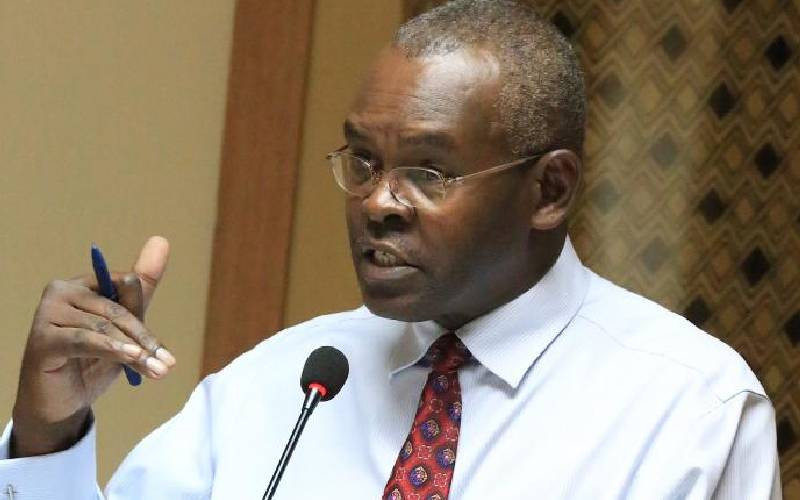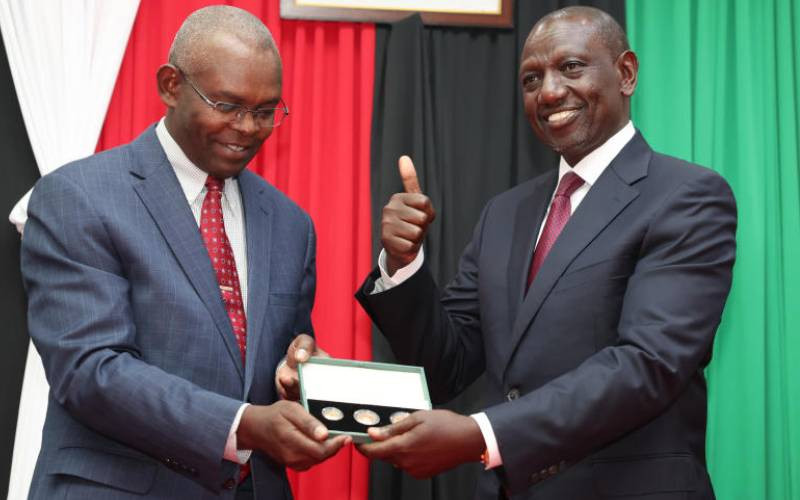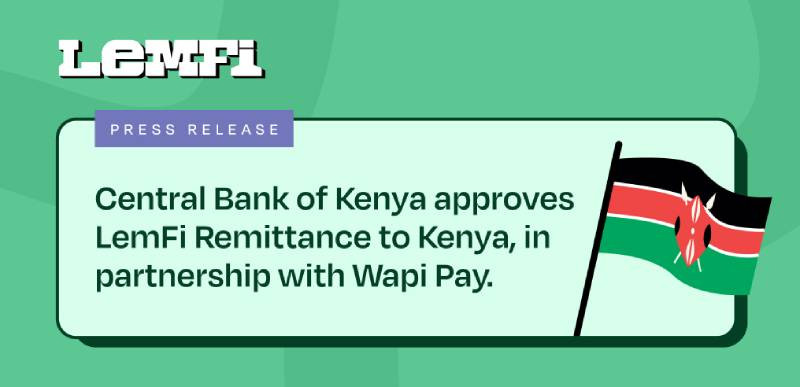NAIROBI: All attention will be on the next policy meeting at the Central Bank of Kenya (CBK) to be held on June 9, where it is expected that the shilling’s slide against the dollar will be addressed.
The next Monetary Policy Committee (MPC) meeting after the one held earlier this month was scheduled for July, but it has since been brought forward.
When trading opened yesterday, CBK quoted the shilling at a mean rate of 98.31 against the dollar. The local unit was at Sh98.21 buying and Sh98.41 selling. These exchange rates reflect average buying and selling prices, but commercial banks and forex dealers usually apply varying rates on their forex transactions.
“The dollar has been strengthening worldwide against other currencies, including the Kenyan shilling, and therefore, there is no need to panic,” said Gerrishon Ikiara, a lecturer in International Economics at the University of Nairobi.
“This weakening of the Kenya shilling is also due to a fall in earnings from tourism, while demand for foreign exchange is being pushed up by the importation of capital equipment for various ongoing projects in the country.”
Dr Ikiara added that while imports were getting more expensive, exporters were earning more — correcting the imbalance that has existed between importers and exporters.
But while CBK has been mopping up excess liquidity from the money market using various monetary policy tools, these actions have not succeeded in stemming the depreciation of the shilling.
“Considering that the Central Bank of Kenya has not been very aggressive in supporting the Kenya shilling, we think the meeting could perhaps be to make active steps towards supporting the currency, which is headed for the 100 mark,” said Faith Waitherero, an analyst at Standard Investment Bank.
BIG WINNERS
But while importers are suffering as a result of a weakening shilling — which requires them to use more of the local currency to make purchases — exporters are gaining, as their earnings in shillings have increased.
“We demand dollars for trade, investments, foreign travel or settling of international obligations, diaspora remittances, and when foreigners pay for exports from Kenya or invest locally to buy shilling-denominated assets,” said Robert Mudida, a senior lecturer at Strathmore Business School.
He argued that while the shilling could be depreciating in nominal terms, it could also be appreciating based on the rate of inflation prevailing in the domestic economy against the rest of the world.
“Clearly, we are now in extraordinary times. The shilling has been falling like a stone and Sh100 to the dollar is no longer if, but when. Therefore, it behoves the MPC, in the absence of a substantive central bank governor, to do something. The markets abhor a vacuum, and we are now in one,” said Aly-Khan Satchu, an independent analyst in Nairobi.
The shilling has been sliding for more than a year but the pace of the fall has picked up in recent weeks, partly due to the global strength of the dollar and a plunge in foreign exchange flows from tourism in the wake of terror attacks in Kenya.
CBK said on its website that the MPC, which meets to set rates every two months, would hold its next sitting on June 9 but did not give a reason for the change. At its last meeting on May 6, the bank said it would use open-market operations to pursue its tightening stance and stabilise prices.
Stay informed. Subscribe to our newsletter
ACTIVELY CONCERNED
Analysts said the bank may aim to reassure importers and other businesses that it was actively concerned and would try to slow the fall, or possibly raise the benchmark lending rate from 8.50 per cent, where it has been since May 2013.
“It would be unusual for the CBK to call an early meeting only to keep everything on hold, so this in itself may provide some clues as to the policy intention,” said Razia Khan, the head of research for Africa at Standard Chartered in London.
One trader, who asked not to be identified, said bringing forward the meeting would “send the right signals to the biggest importers that ‘Please note we are aware of what has happened to the shilling’.”
The trader said CBK’s message seemed to be that “as much as it is inherently weak, we will do as much as possible to use other monetary tools to contain the shilling’s weakness, and of course, inflationary pressures”.
— Additional reporting by Reuters
 The Standard Group Plc is a
multi-media organization with investments in media platforms spanning newspaper
print operations, television, radio broadcasting, digital and online services. The
Standard Group is recognized as a leading multi-media house in Kenya with a key
influence in matters of national and international interest.
The Standard Group Plc is a
multi-media organization with investments in media platforms spanning newspaper
print operations, television, radio broadcasting, digital and online services. The
Standard Group is recognized as a leading multi-media house in Kenya with a key
influence in matters of national and international interest.
 The Standard Group Plc is a
multi-media organization with investments in media platforms spanning newspaper
print operations, television, radio broadcasting, digital and online services. The
Standard Group is recognized as a leading multi-media house in Kenya with a key
influence in matters of national and international interest.
The Standard Group Plc is a
multi-media organization with investments in media platforms spanning newspaper
print operations, television, radio broadcasting, digital and online services. The
Standard Group is recognized as a leading multi-media house in Kenya with a key
influence in matters of national and international interest.









